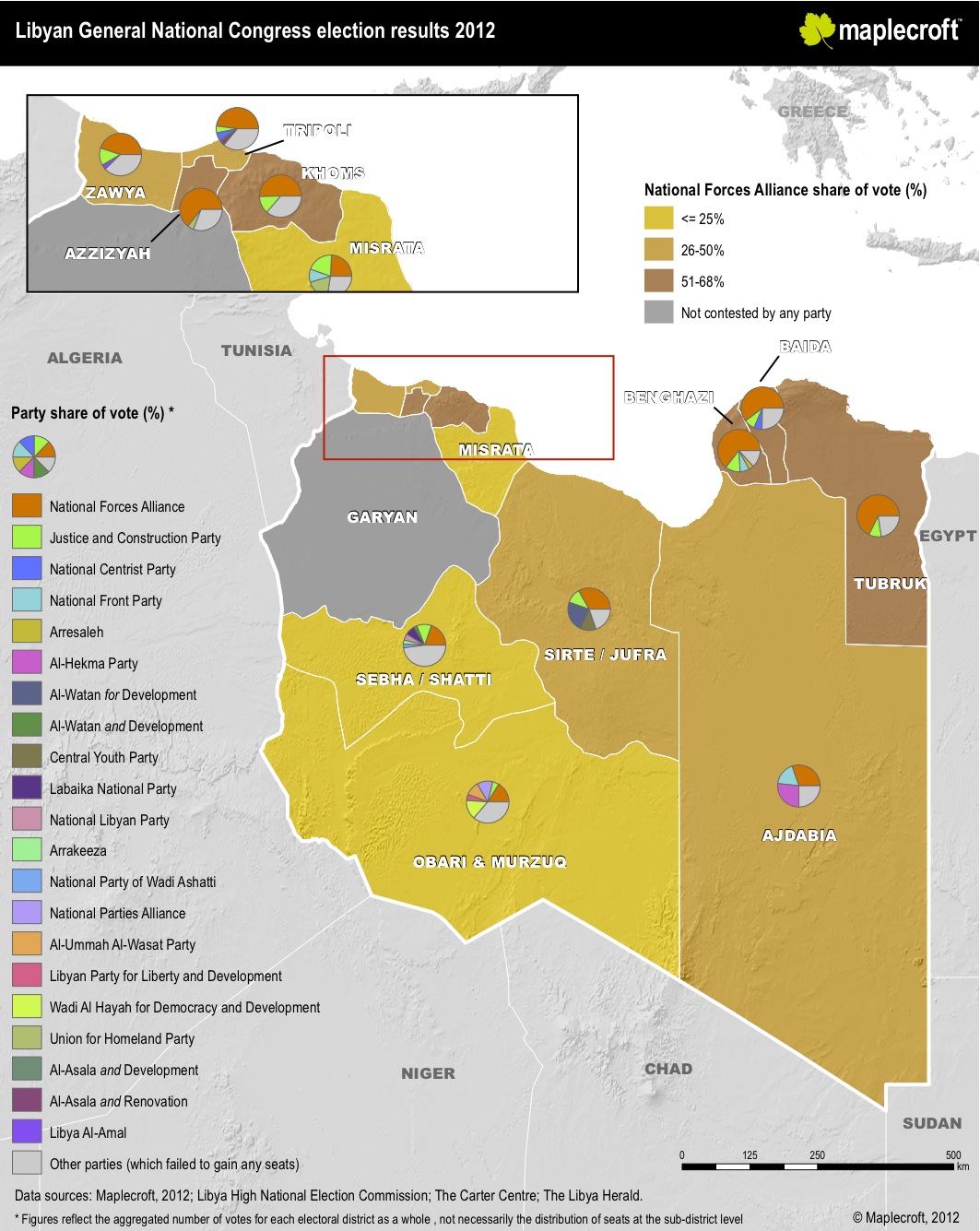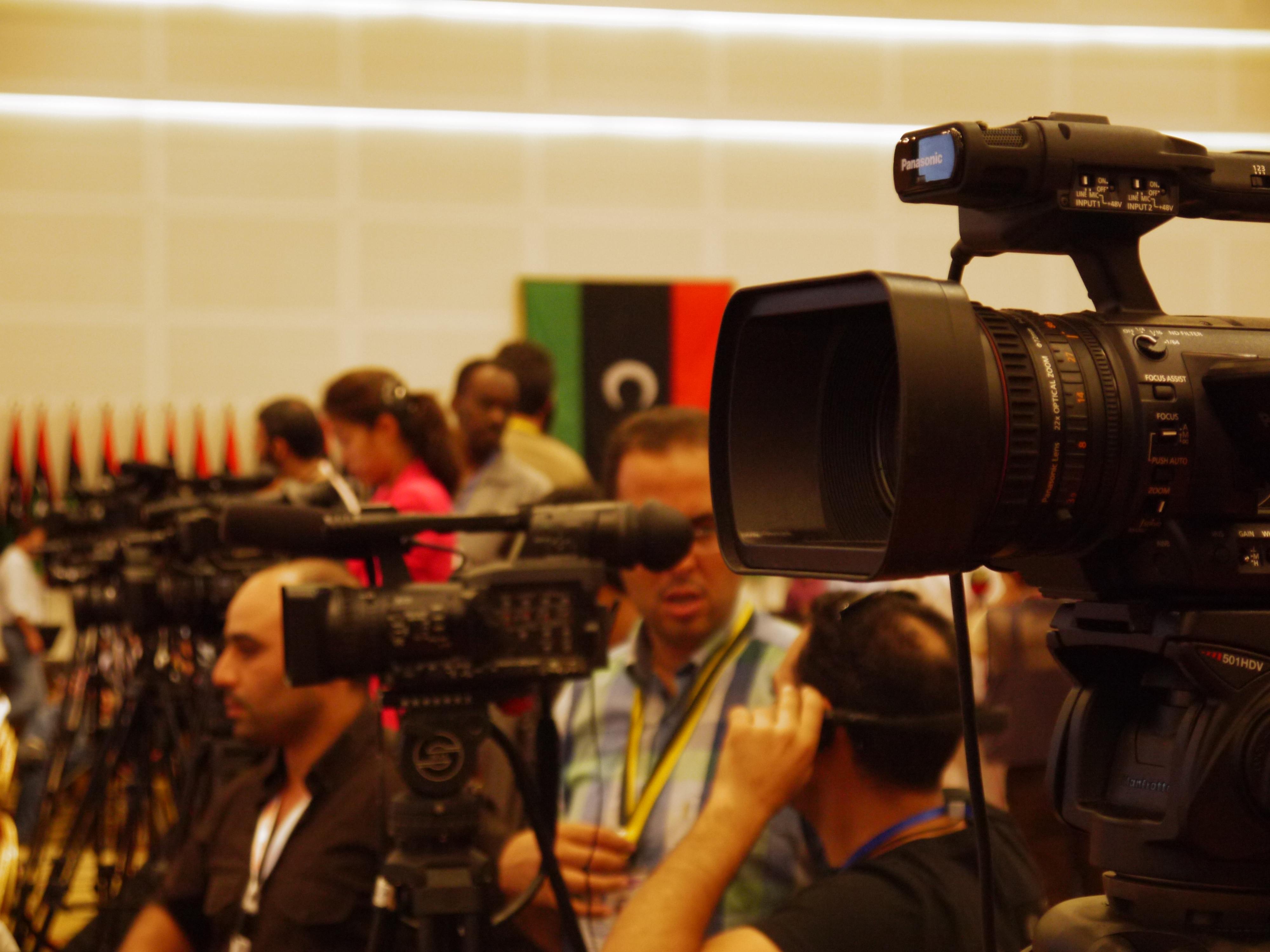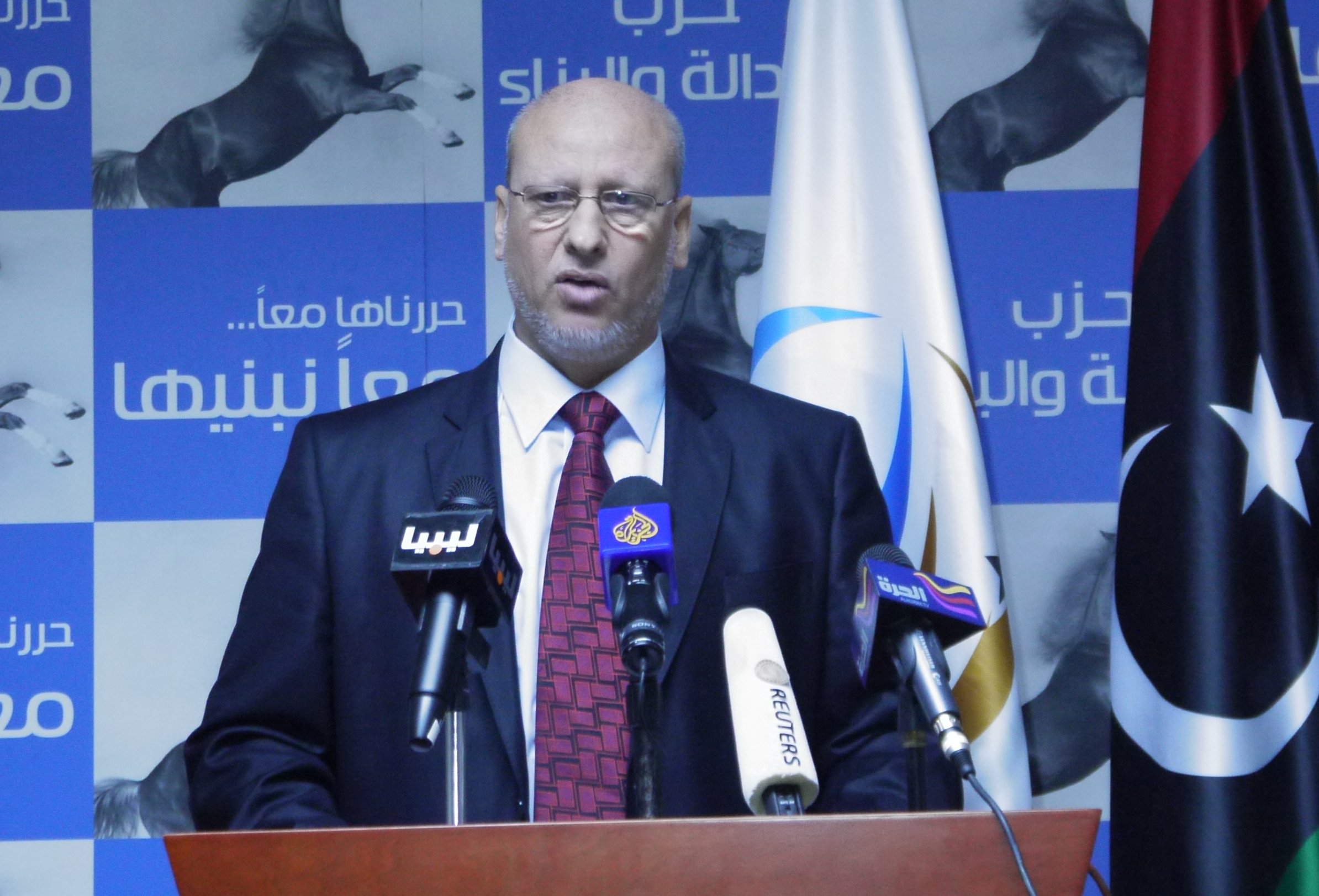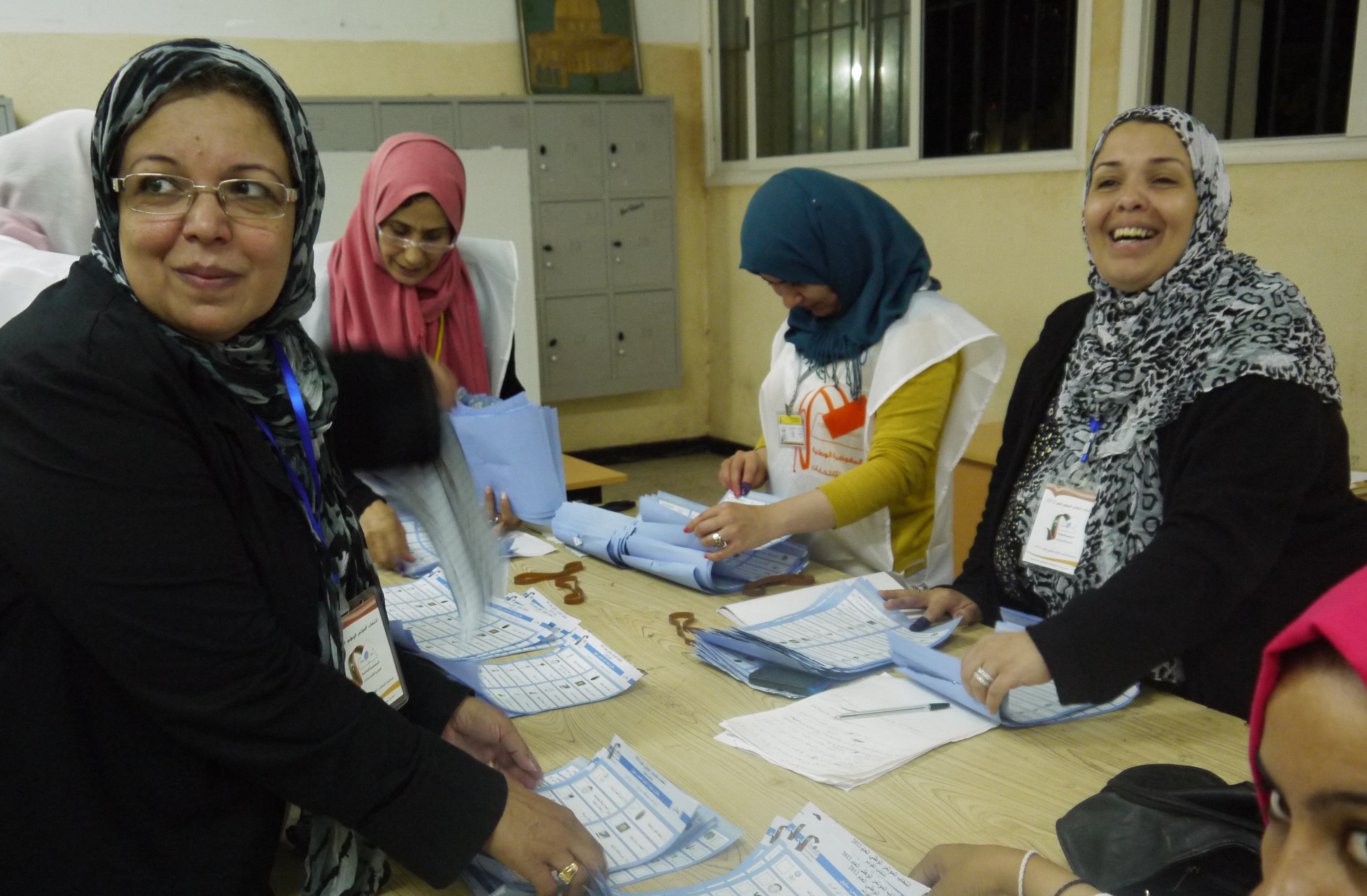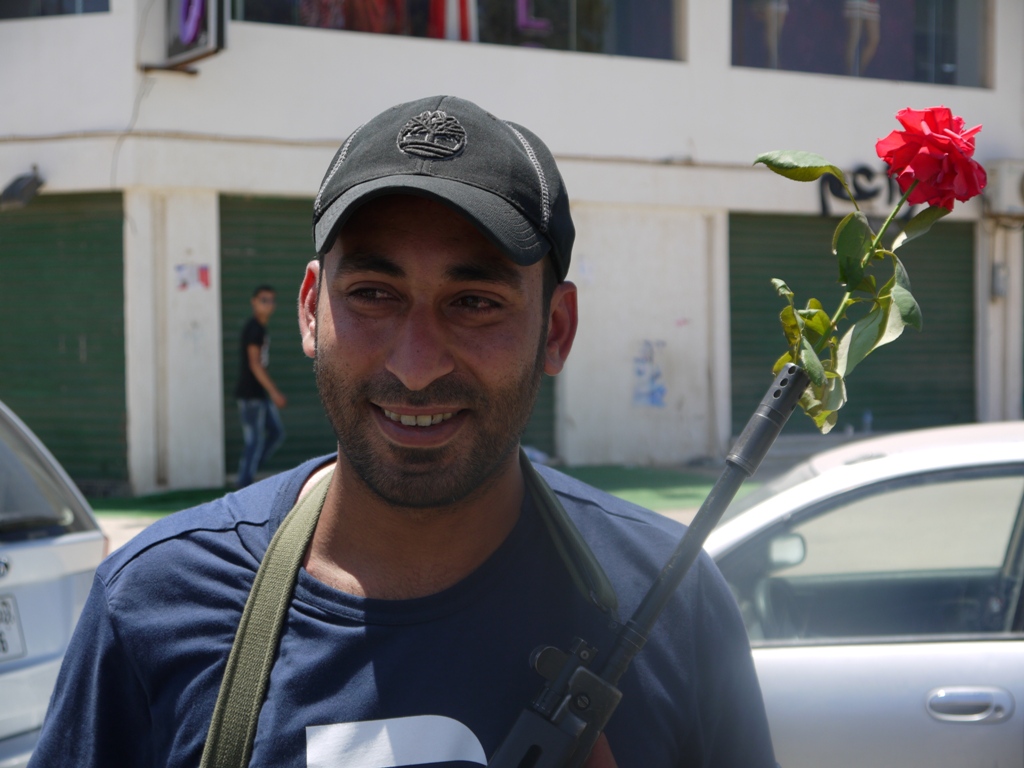By Henrik Tessmer and Michel Cousins.
Tripoli, 7 July:
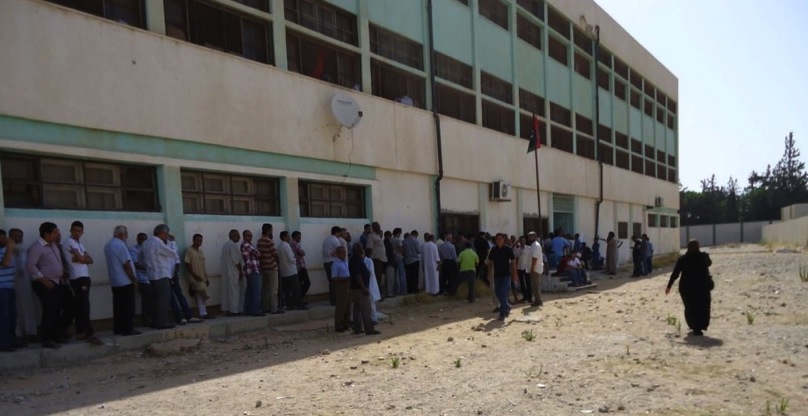
In a sign that holds great promise for the new democracy in Libya, voters . . .[restrict]started to queue in Tripoli from six o’clock in the morning. At Ali Ureyet school in central Tripoli, long lines of enthusiastic men and women of all ages and walks of life queued up in front of the poll centres from early morning.
And amazing it was witnessing the tenacious crowds – no one had expected a turn out of this magnitude. Comparing it to Egypt’s own parliamentary elections, an Egyptian reporter said: “This is incredible.”
Neyamat, a 51-year-old woman went to the polls with her 83-year-old mother and 70-year-old uncle Yassin Mabrouk. “My uncle is sick today,” she said. “But he decided to go anyway.”
“He was a criminal,” Mabrouk says of Qaddafi, while resting heavily on the arm of his grandson and his cane.
A few metres away, another 83-year old, a man of in a wheelchair, is in tears and unable to respond to the questions asked by a Tunisian journalist.
“This is the first time in over forty-two years [that we have voted] – We feel happiness,” a 35-year-old veiled mother said.
In the streets, the noise was of car horns being constantly hooted. At least a third of the traffic were covered in Libya flags. The city was in carnival meed.
“We call it a wedding day”, said beaming businessman Mohamed Bashir Kharubbi just after he had voted at a polling station on Tripoli’s Shara Ennasser. Earlier he had taken his 95-year old father to vote elsewhere.
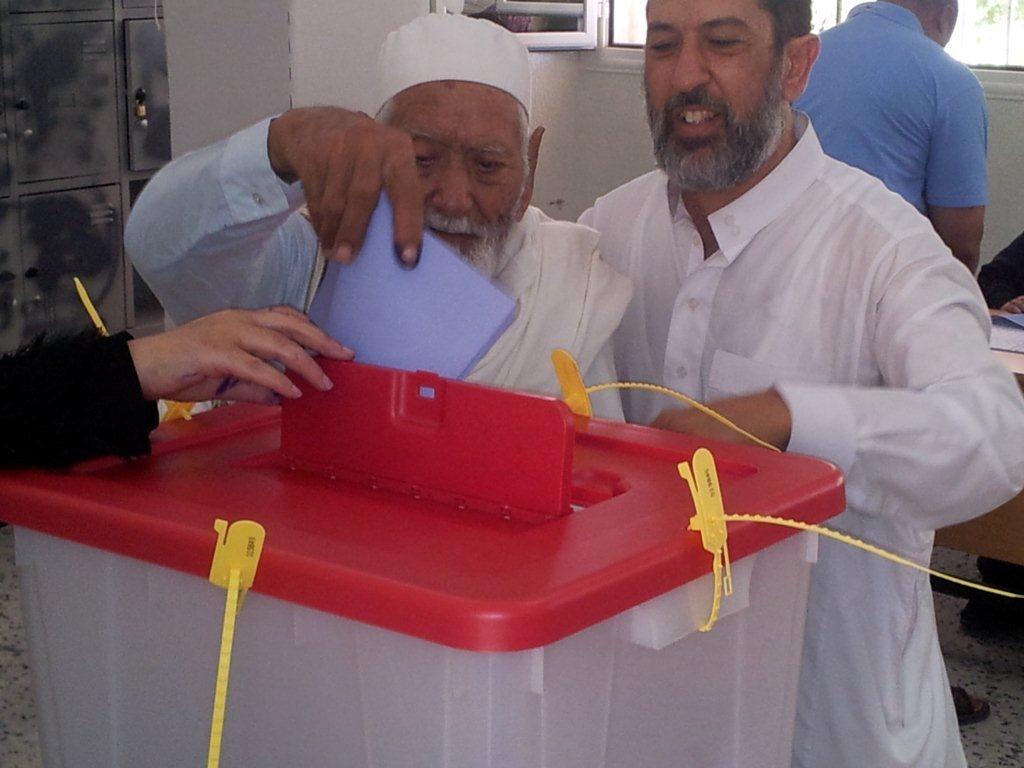
By 11.45 am almost 940 people had cast their votes in the six polling stations at the Shara Ennasser centre, three for men and three for women. It was a slow business. Only one voter was allowed into the polling stations at a time. It was noticeable that the queues of women waiting patiently outside were much longer than those of men. Of those who had voted, 415 were men and 523 were women.
An evidently happy Ian Martin, head of the UN’s Special Mission in Libya, said that he too has seen long queues of women waiting to vote.
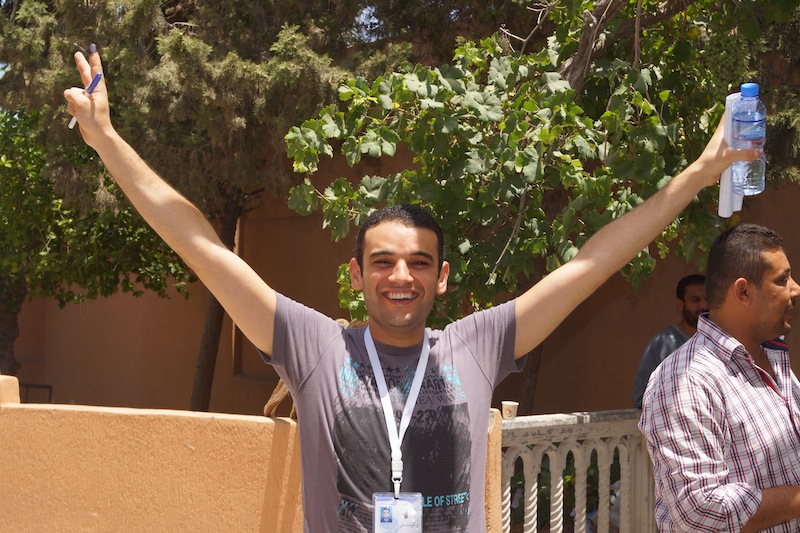
In Suq Al-Juma, where Abdul Hakim Belhaj is standing for the Nation Party, some 2,500 men and women had voted between 8 a.m. and 12.30 p.m. at the polling centre at Bashir Al-Ustah school. There are 12 polling stations there, six for men, six for women. There, women were said to accounted for 35 percent of the voters.
In another unscientific straw poll conducted at the station there, most voters questioned said they had voted for Mahmoud Jibril’s alliance. [/restrict]
